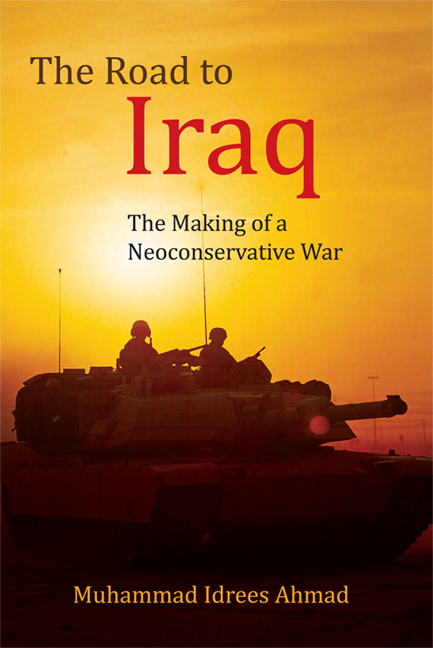Conclusions
from Part 4 - The Debate
Published online by Cambridge University Press: 05 August 2016
Summary
The Iraq war cannot be explained by reference to economic or ideological structures alone. It had its agents (the neoconservatives) and its trigger (9/11). It was executed by Bush, Cheney and Rumsfeld, but Iraq in the end was a neoconservative war not only because the neoconservatives had wanted it longer, but also because without their specific contributions to the case for war – the Iraq–Al-Qaeda a link, the mythical WMDs – the war would not have happened. The neoconservatives’ interest in toppling Iraq preceded Bush's, Cheney's or Rumsfeld's. Regime change had been official US policy since 1998 and unofficial policy even longer. But the means for this were understood to be diplomatic pressure, economic strangulation and covert action – not invasion and occupation. Bush only started receiving briefings on the subject in the run-up to his presidential campaign by an advisory group led by Condoleezza Rice, who in a position paper for Foreign Affairs had argued that Iraq's military power was ‘severely weakened’ and that the US could even live with a nuclear Iraq. Sometime between then and the winter of 2001, Bush and aggressive nationalists like Cheney and Rumsfeld were persuaded of the war's merit. For Cheney and Rumsfeld, the primary motivation was the war's demonstrative effect – a sanguine assertion of US military power. For Bush, according to most insiders, the chief motor was his simplistic, messianic belief in fighting what he considered an ‘evil’ regime, one that had bedevilled his father and was capable of, if not responsible for, attacks like the ones on 9/11. The three may have believed that the war would also benefit Israel, but that was not their overriding concern.
It is true that war cannot be blamed on warmongers alone. The neoconservatives succeeded because they operate within a political consensus that sees US global dominance as the desired end and military force as the necessary, if not preferred, means. The public is by disposition isolationist, but through a combination of fear and appeals to national chauvinism can be induced to tolerate, if not acquiesce in, foreign adventures.
- Type
- Chapter
- Information
- The Road to IraqThe Making of a Neoconservative War, pp. 167 - 175Publisher: Edinburgh University PressPrint publication year: 2014

